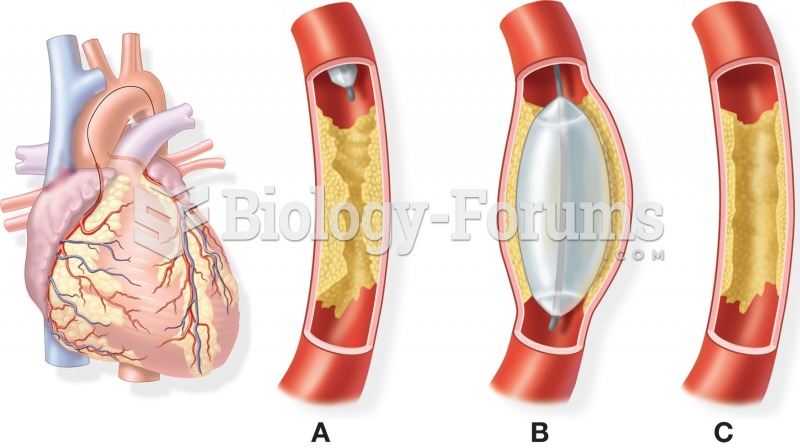|
|
|
Recent studies have shown that the number of medication errors increases in relation to the number of orders that are verified per pharmacist, per work shift.
Symptoms of kidney problems include a loss of appetite, back pain (which may be sudden and intense), chills, abdominal pain, fluid retention, nausea, the urge to urinate, vomiting, and fever.
No drugs are available to relieve parathyroid disease. Parathyroid disease is caused by a parathyroid tumor, and it needs to be removed by surgery.
Normal urine is sterile. It contains fluids, salts, and waste products. It is free of bacteria, viruses, and fungi.
A strange skin disease referred to as Morgellons has occurred in the southern United States and in California. Symptoms include slowly healing sores, joint pain, persistent fatigue, and a sensation of things crawling through the skin. Another symptom is strange-looking, threadlike extrusions coming out of the skin.
 A vasectomy, showing how each vas deferens is tied off in two places and then a section is removed f
A vasectomy, showing how each vas deferens is tied off in two places and then a section is removed f
 Balloon angioplasty: (A) deflated balloon catheter is approaching an atherosclerotic plaque; (B) pla
Balloon angioplasty: (A) deflated balloon catheter is approaching an atherosclerotic plaque; (B) pla
 Thyroidectomy. In this procedure, the thyroid gland is accessed by a vertical incision through the n
Thyroidectomy. In this procedure, the thyroid gland is accessed by a vertical incision through the n
 A well-folded letter fits easily into the envelope and is easily removed by the person who receives ...
A well-folded letter fits easily into the envelope and is easily removed by the person who receives ...



